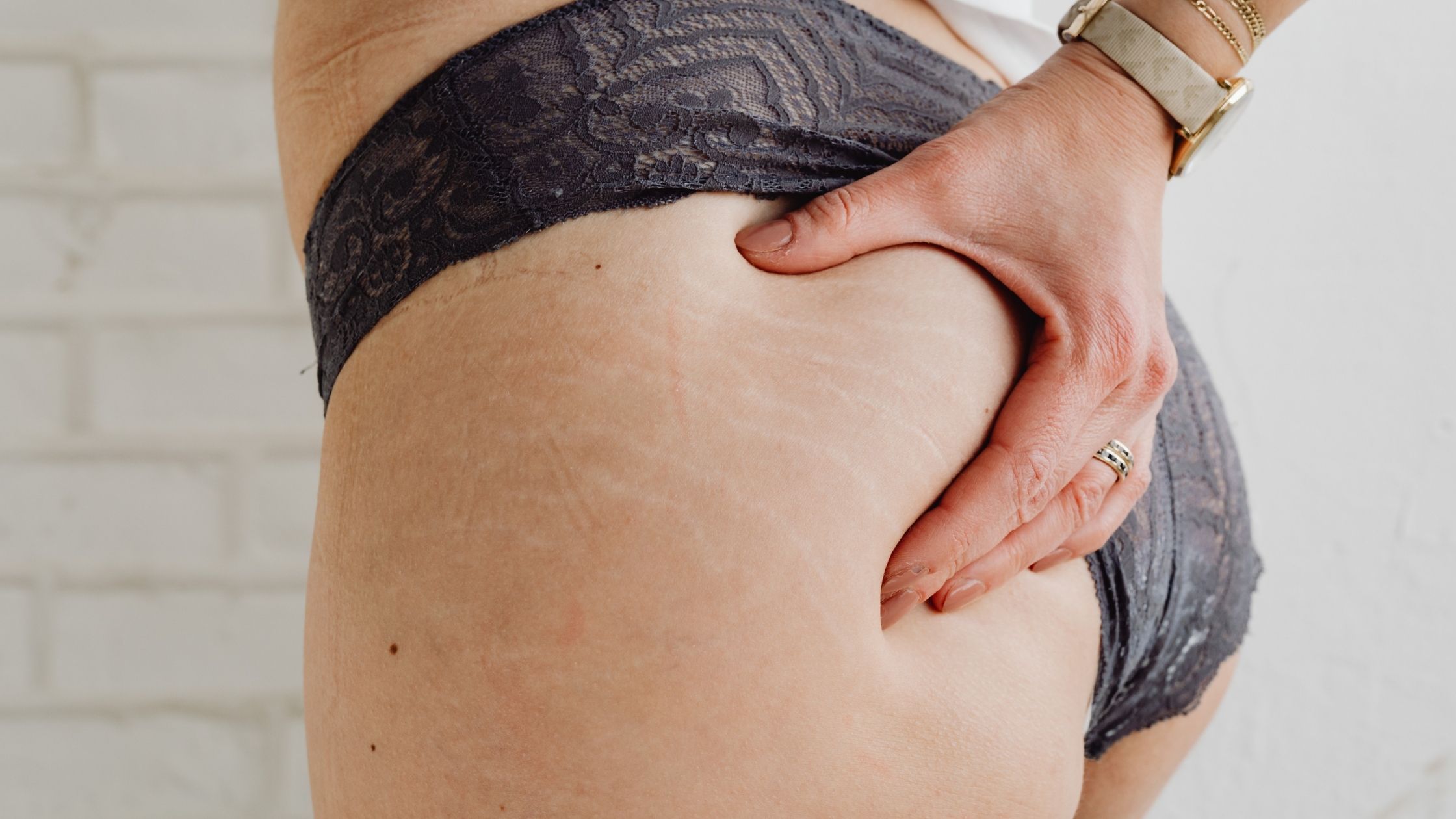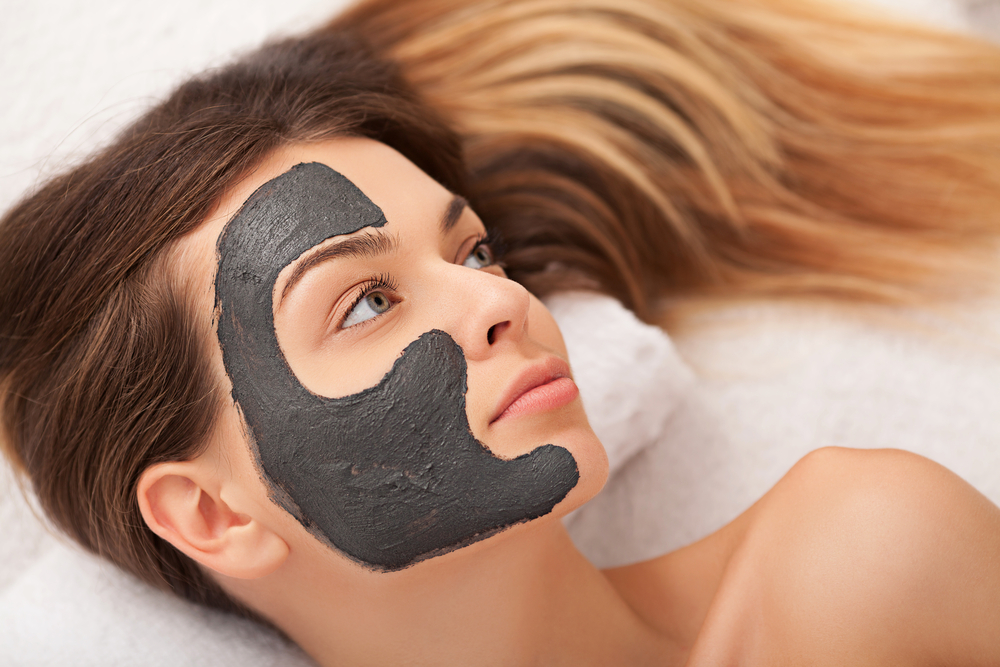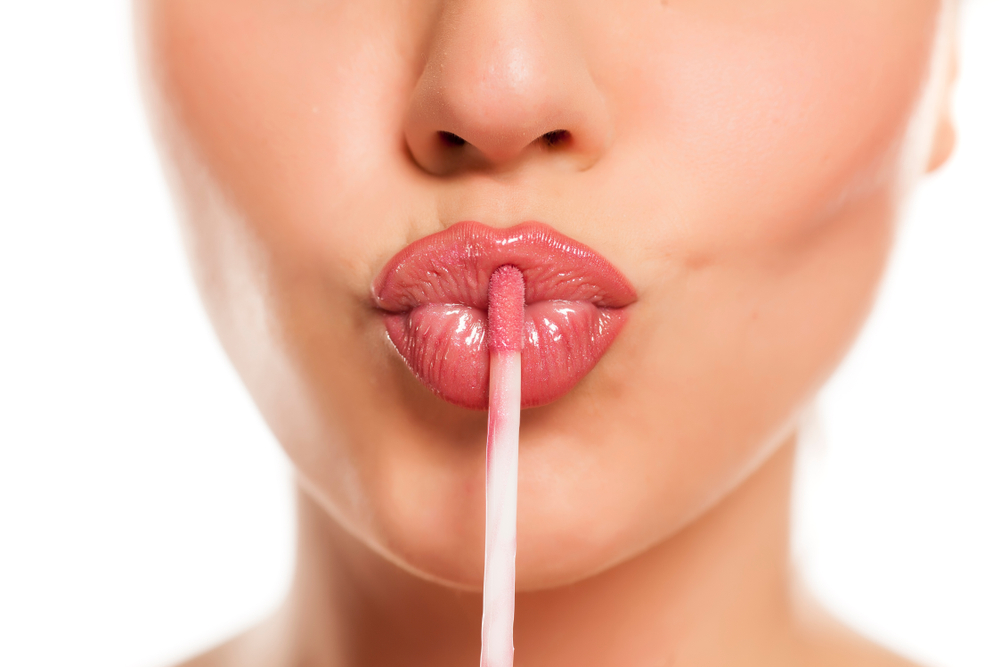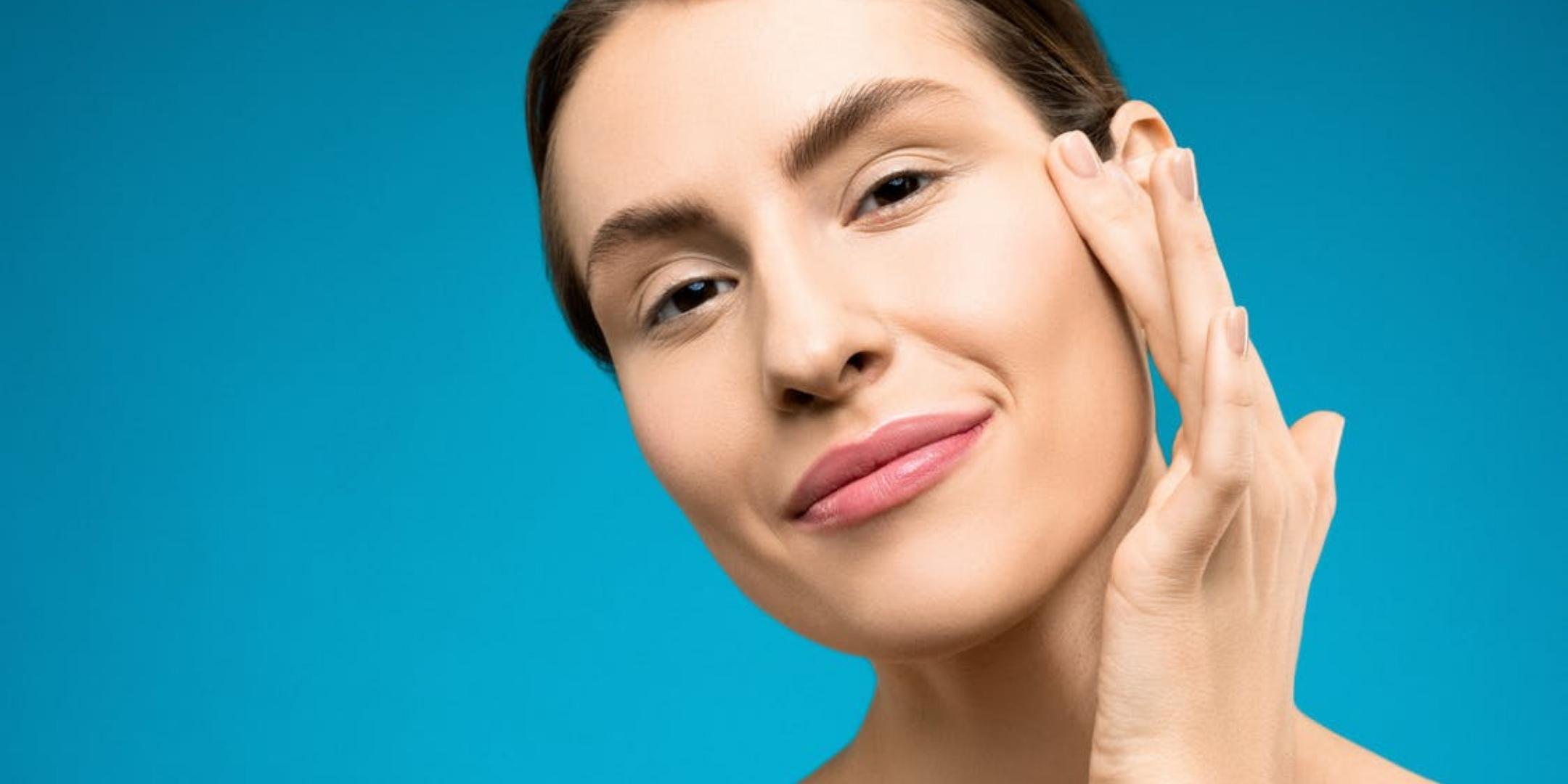Acne and hyperpigmentation, no matter where it appears on the body, may deal a telling blow to your self-confidence. Your butt is especially prone to hyperpigmentation as most of us have sedentary lifestyles where our butts are trapped sitting covered in fabrics that chafe and cause excessive friction and sweating.
Exposure to the sun during the hot summer months can also make your butt vulnerable to acne and hyperpigmentation. If you feel embarrassed about hyperpigmentation on your butt, here’s what you can do to treat them.
What Are The Causes Of Hyperpigmentation On The Buttocks?
An array of factors that can cause hyperpigmentation and butt discoloration is no different from hyperpigmentation on the rest of the body, including the face. Hyperpigmentation can be caused by hormonal imbalance, tight clothing, poor hygiene, sweaty clothes after a workout, folliculitis, etc.
The most common cause of hyperpigmentation is acne. It occurs when excess sebum oil for lubricating the skin is released by the hair follicles. Dead skin cells also clog the hair follicles, build bacteria in the pores and inflammation.
Most acne-related complications have been linked with heredity and hormonal changes in the body. In other words, there isn’t much one can do but incorporate a set of practices such as regular washing of the affected area and selective mitigation with effective skincare products.
Tight clothing can also trap dead skin cells, dirt, and sweat, especially after a sweaty workout session leading to new breakouts around the butt. Apart from this, adverse drug reactions to certain medications, an imbalanced diet, and stress can contribute to the outbreak and growth of acne and hyperpigmentation on the buttocks.
What Are The Ways To Treat Hyperpigmentation On The Buttocks?
Hyperpigmentation on your butt is a common occurrence and doesn’t necessarily need treatment. It may fade away with time. If the discoloration bothers you, you may choose treatments ranging from topical to oral to minimally invasive therapies.
Choosing these procedures combined with guidance from a qualified and experienced dermatologist can help you get the most out of the treatments listed here.
Salicylic Acid
Salicylic acid-based serum, gel, cleanser, and facial mask can help you prevent clogged hair follicles and blocked pores responsible for hyperpigmentation. Salicylic acid provides exfoliation by penetrating deep into the pores and removing dirt.
Benzoyl Peroxide
Benzoyl peroxide has antibacterial properties and can be beneficial for decreasing hyperpigmentation. When used in combination with other topical antibiotics, benzoyl peroxide can prove to be effective against acne around the butt region.
Some people may experience allergic reactions and rashes, including dryness of the skin. Try doing a patch test for products containing benzoyl peroxide before applying it to your skin.
Retinoids
Using retinoic acid-based topicals is effective in treating mild to moderate acne. Retinoids can help prevent hyperpigmentation by increasing the cell turnover and prevent dead cells from clogging the pores. However, retinoids can increase sensitivity to the sun, cause irritation, and should be used with discretion.
Oral Prescription Medications
If topical treatments have not responded well as desired, you may use prescription medications to treat severe butt acne and hyperpigmentation. Oral isotretinoin use in some patients has resulted in dramatic resolution of post-inflammatory hyperpigmentation. Additionally, prescription anticholinergic medicine such as glycopyrronium cloth has been employed for reducing chronic sweating and bacteria formation in the pores in patients with butt hyperpigmentation.
Use of prescription medicine can cause serious side effects; consult with your healthcare provider first before trying on any medication to treat your butt acne and hyperpigmentation.
Other Alternatives
You can also try other options such as chemical peels, Intense Pulsed Light treatments, and blue light or red-light treatments to help treat hyperpigmentation and prevent it from occurring.
Hyperpigmentation On Buttocks: Do Natural Remedies Work?
Natural remedies have long been used to cure and treat common ailments, including acne and hyperpigmentation. Natural remedies are inexpensive and favorable to the skin with little to no side effects.
Several home remedies can help you treat the annoying occurrence of hyperpigmentation on the butt. However, the efficacy of each treatment will ultimately depend on individual skin types and the extent of hyperpigmentation. A patch test is always a safe option to see how well your skin will react to the treatment and avoid potential allergic reactions.
Applying Vitamin C-based natural remedies such as orange juice or peel and lemon juice may help reduce acne-related inflammation and hyperpigmentation. Another potent natural remedy that has been touted to treat acne is curcumin – the active ingredient in turmeric. Curcumin has antioxidant, anti-inflammatory, antimicrobial, antimutagenic, and anticancer properties and has many health benefits for your skin.
You can also try natural skin whitening products daily to fade away hyperpigmented spots or marks. Exfoliating dead skin cells regularly may help you achieve the desired results faster.
Consistent use of natural remedies will lighten the pigmented areas on the butt but will take some time for you to notice the results. Remember, these are chemical-free treatments, and you needn’t worry about incorporating them into your daily routine to treat and prevent hyperpigmentation on your butt.
How Long Does The Recovery Of Hyperpigmentation On The Buttocks Take?
Hyperpigmentation on the buttocks can sometimes be quite stubborn, and recovery can often be a long-drawn affair. Most acne-related hyperpigmentation takes about 3-12 months before you start noticing a visible difference. The length of time and overall recovery from butt hyperpigmentation can vary from one individual to another. It also depends on the treatment procedures that you have chosen to initiate. Natural remedies will take comparably longer to treat your butt hyperpigmentation, though without any severe consequences.
How Can We Prevent Hyperpigmentation On Buttocks?
We can minimize acne and hyperpigmentation by incorporating and practicing a few hygienic measures in our daily lives.
- Wear loose-fitting clothes to allow your skin to breathe. Cotton fabrics absorb less heat and prevent excess sweating.
- Use mild, unscented, non-acidic soap for cleaning.
- Avoid shaving or using hair-removal lotions. These lotions have chemicals that can cause damage to sensitive skin.
- Eat a healthy diet with a variety of fruits and vegetables, lean meat, and wholegrain cereals. Avoid fatty foods to maintain healthy skin.
- Consume lots of fluids to flush out toxins and keep the skin smooth and hydrated.
- Avoid skin bleaching or off-label products since these can exacerbate the condition and cause scarring or irreversible damage.
- Use sunblock with SPF 30 to prevent exposed skin from darkening.
The Bottom Line
You are not alone if your confidence is crumbling because of hyperpigmentation on the butt. Acne and hyperpigmentation on the buttock is a common and harmless condition that affects a lot of women. A variety of treatment options are available to help you overcome the problem of butt hyperpigmentation.
Dermal practices such as regular washing and moisturizing the affected area and wearing breathable clothes can significantly improve hyperpigmentation. Active self-care along with a healthy diet regime will also go a long way in alleviating hyperpigmentation on the buttock, including the stress and desperation that comes bundled with it.









